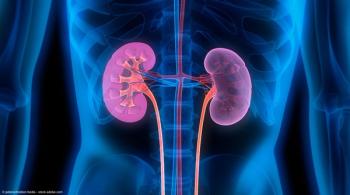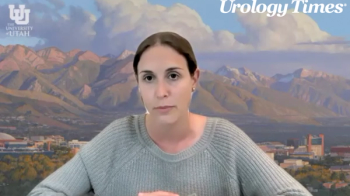
How have your prescribing habits for pain changed?
"Personally, I’ve tried to use a lot more NSAIDs and over-the-counter pain medications but there are times where I give very short-course Percocet or Norco to cover a patient for surgery," says one urologist.
"We have changed slightly, but not much. We have a law, at least here in Texas, where there’s a special, triplicate type of prescription pad for class III medications like morphine.
Vicodin and hydrocodone have been added to that list, meaning they are more controlled and we’re keeping better track of those prescriptions.
Many patients who would have received hydrocodone postoperatively for pain may now go home with tramadol instead-not always but frequently. And they’re doing just as well on tramadol as the patient who received hydrocodone after surgery. A few of them still need something more, but it works for a lot of patients.
Opioid dependency has been a long-standing problem that’s still ongoing. I don’t think it’s getting any worse than it has been, and hopefully it is getting better, but there are a lot of people using opioids who don’t need them.”
William A. Elfarr, MD / Athens, TX
Next: "My own prescribing habits have changed""My own prescribing habits have changed in that we tend to work with patients more closely on preoperative expectations regarding pain control, limiting the amount of narcotics that we provide, and looking at other medications that are not dependency-inducing to take their place.
As importantly, moving forward, is that we have two studies that are IRB-approved going on at Virginia Mason looking at pain control postoperatively. Specifically, we’re looking at alternatives to opiates for standard urologic procedures. An additional IRB-approved study is looking at opioid exposure in patients who had surgery a decade ago and seeing what risk we are putting those patients in. Does exposure to opioids prime those patients for future issues with those same drugs?
It’s a retrospective pilot study of 100 patients, but the issue is important urologically-regionally and nationally. Understanding those risks so we can develop better strategies moving forward is really critical.
These patients had radical prostatectomies 8-10 years ago and were involved in a pain-based study looking at whether belladonna and an opiates suppository at the time of surgery improved their postoperative perception of pain.
Looking at those same patients a decade later, we know exactly what narcotics they were exposed to at the time of that surgery. We’re asking about their recollection of their pain from that surgery, but just as importantly, about their pain issues today. Are they on chronic pain medicine? When they’ve had surgery since then, have they had higher narcotic requirements than we might expect? Essentially, we’re using pilot data to determine if previous exposure to opioids impacts their need for it a later date.”
John Corman, MD / Seattle
Next: "We’ve always tried to avoid the use of narcotics if possible, but a lot of what we deal with is acute pain.""We’ve always tried to avoid the use of narcotics if possible, but a lot of what we deal with is acute pain. We don’t deal with much chronic pain so we don’t provide a lot of chronic pain medication. Most of what we see is acute, like after kidney stones or major surgery, where there’s a short-term need for strong pain medication. The hard thing is trying to figure out how much somebody is hurting because pain is somewhat subjective.
Personally, I’ve tried to use a lot more NSAIDs and over-the-counter pain medications but there are times where I give very short-course Percocet or Norco to cover a patient for surgery. Sometimes you have a patient call back after a week or two saying they need another prescription. It’s nothing new; we’ve always dealt with that. My office has always been pretty quick to say, ‘No, you’re beyond your postoperative period.’
If patients complain about significant pain, we say they need to be reevaluated to figure out why they have pain, because what we were taking care of has been taken care of. We’re pretty strict about that.
There’s also been an effort to recognize when patients are doctor shopping and getting drugs from multiple places. There’s a website to check if a patient has had narcotic prescriptions anywhere else in the past ‘X’ number of months. I think that’s a helpful resource.
I definitely think more about the issue now, because the milieu is different. When I started practicing we were in a different era. It was a time that if there was any pain, then we weren’t taking care of our patients’ pain enough. The big push was to get everybody down to a certain pain level. It’s swung the other way now, where we see dangers to overprescribing these medications. Maybe some pain is OK. What is manageable pain? That’s where we are now.”
Jason Burrus, MD / Birmingham, AL
Newsletter
Stay current with the latest urology news and practice-changing insights — sign up now for the essential updates every urologist needs.






